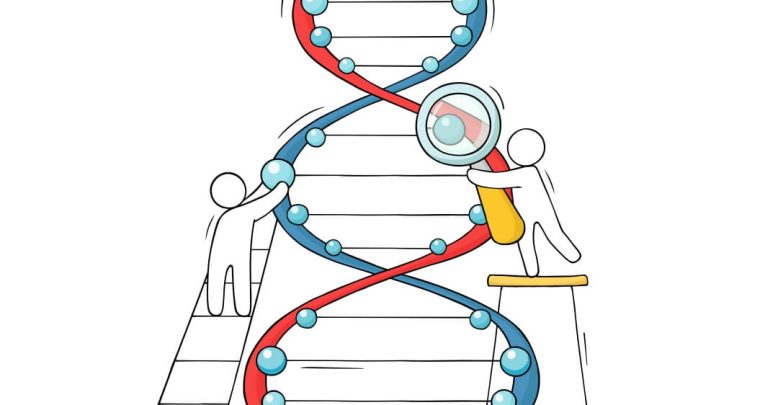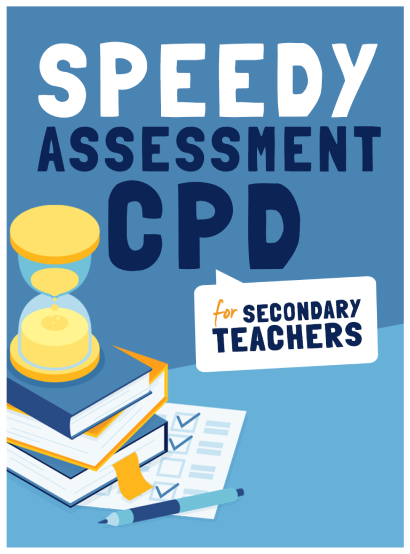Teens, genes and means – Why are we still debating whether genetics affect educational outcomes?

Could genetics inform our understanding about the learning process in ways that have stayed hidden until now? Conor McCrory is yet to be convinced…

Is academic ability fixed or are students blank slates? Do schools make a big difference to students’ lives, or is their destiny already settled?
Most educators will probably hold more nuanced views than those implied by the dichotomous questions I’ve just posed, but the notion that some pupils are ‘just good at school’ because of gifts granted to them by their biology isn’t new. Such perspectives have waxed and waned in popularity over years, if not decades, alongside changing trends in educational philosophy and evolving social and political attitudes.
As a primary school pupil in early 90s Belfast, I managed to navigate my way through the 11-plus exam used to select entry to Grammar schools. We were never told that we were ‘genetically gifted’ as such, but there was still a subtle implication that those who passed were simply ‘academically good’, while those who didn’t, well … maybe weren’t.
That said, we were rigorously drilled for at least a year prior to taking the exams. Evidently, they didn’t believe in our ‘innate ability’ enough to leave things solely in the hands of biology, and must have felt out environment had something to do with it…
‘Genetically informed schooling’
The 11-plus may be broadly out of favour today, but notions that school performance is rooted in biology have received a boost in recent years. In 2013, then DfE special advisor Dominic Cummings made headlines for suggesting to his boss at the time, Michael Gove, that genetics outweighs teaching. Gove himself was then the subject of another ‘genes versus education’ story later that year, when The Independent reported on meetings he’d held with a noted ‘IQ genes’ professor.
The professor in question was Robert Plomin, a psychologist and behavioural geneticist at Kings College London. Plomin has argued that genetic variation goes a long way towards explaining the differences we see between students’ achievement at school, more so than even differences in school or life experience. Hence the bold assertion he made in his 2018 book Blueprint: How DNA Makes Us Who We Are, that “Schools matter, but they don’t make a difference.”
In an earlier 2013 book, G Is For Genes – co-authored with psychologist and University of York professor Kathryn Asbury – Plomin had argued in favour of ‘genetically informed schooling’. In Plomin and Asbury’s telling, a child’s genotype could be used to calculate their risk of developing behavioural and learning disorders, such ADHD or dyslexia, and develop individual learning plans emphasising students’ strengths and weaknesses. They even went so far as to advocate that teachers be trained in the ‘genetics of learning’.
‘The genetics of intelligence’
The historical links between intelligence testing and eugenics has led some to dismiss any research into the genetics of intelligence as being an inherently right-wing project – a view that has heavily influenced the critical reception of Plomin’s work. More recently, however, several new books from authors aligned with the so-called ‘hereditarian left’ have attempted to ‘rescue’ the concept of educational genetics from the political right wing.
Fredrik deBoer’s The Cult of Smart and Kathryn Paige Harden’s The Genetic Lottery both accept the premise that at least some aspects of an individual’s intelligence is attributable to inherited genetic difference. deBoer’s central argument is that we should accept how students have different proclivities and get over them, and focus less on measuring a limited conception of intelligence and type of academic pursuit that could be described as the ‘cult of smart’.
deBoer envisions a society where individuals have their needs met and can flourish, regardless of their academic ability. I can’t argue with him on the latter point, but I’m wary of taking population level statements and applying them to individuals. I’m also anxious about the implications of accepting limits to a person’s potential.
For Harden, genetics helps us ‘see’ who needs the most help. Her view may be backed up by a recent genome-wide Association Study of 3 million individuals, which found that 12% to 16% of the variance in educational attainment (the number of school years completed) was associated with individuals’ ‘polygenic index’ – a kind of DNA-based profile. Yet while Harden considers these sorts of insights to be of primary moral importance for the promotion of equality, the study’s authors acknowledge that they “Cannot distinguish whether the associations are causal or not.”
Environmental factors
Writer John Gillott counters that it isn’t clear, in an educational context, how genetics helps us ‘see’ who needs help. In his words, “The phenotype is all we need” – the phenotype being the observable characteristics of a student. To that end, observations of students by teachers, parents and other education specialists can tell us more directly about learners’ needs than a polygenic index ever could.
Harden’s former supervisor, psychologist Eric Turkheimer, believes that many of the claims made concerning how genes relate to complex aspects of human lives, such as school outcomes, are far too strong to be sustained by current scientific knowledge. For him, there are no genes or groups of genes that can influence complex human outcomes in clear-cut ways – especially not in ways where we can see what’s actually happening.
The processes involved are very different to those responsible for genetic conditions such as phenylketonuria, in which a single gene variant will prevent a person from breaking down phenylalanine (present in some foods and artificial sweeteners) and can lead to brain damage if left untreated. In this case, the required treatment is an environmental one that entails avoiding foods with phenylalanine, prompting Turkheimer to wonder why, if it can be made to go away environmentally, in what sense it can be said to be a genetic condition.
The corollary here would be that if there were ‘environmental interventions’ in education that could be shown to produce tangible gains, to what degree would genetic knowledge add to our understanding of said interventions? It’s a fair question, and one that I never felt deBoer or Harden’s books quite answer, interesting and well-written though they are.
Trending
A bridge too far?
None of this is to say that there isn’t any value to such studies. However, the causal chain between genes and the sorts of outcomes we care about in schools is so long that many other causal factors will inevitably enter the mix, to an extent that will muddy the importance of any biological factors to test scores or grades. In relation to the everyday practice of classroom teachers or school administrators, they’re most likely of limited, even negligible use.
Let me try an analogy. If a driving instructor is helping a learner to drive, will they teach them about the workings of the internal combustion engine and the physical laws of motion? Probably not. Would possessing that knowledge hurt the learner? Again, probably not. Would the learner’s time be better spent simply learning about the procedural and practical aspects of driving a car and navigating the roads? Probably yes.
I’m therefore not saying that there’s no value in studying lower level processes at a biological (or in our analogy, physical) level. But by – wrongly – focusing on this ‘level’ of analysis, we risk failing to see the wood for the trees.
In 1997, the philosopher John Bruer stated that attempts to ground classroom practice in neuroscience was a ‘Bridge too far’, and still felt this to be the case 20 years later. He believed that better insights could be had from observation and understanding grounded in cognitive psychology, which has aided instructional design and problem solving in a way that neuroscience had yet to convincingly do. He maintained that any neuroscience findings would have to be translated via two bridges – one from neuroscience to psychology, and another from psychology to education.
This biology teacher thinks the same is likely true for genetics and education. Will those bridges ever be crossed? I’m not holding my breath.
Conor McCrory is a science teacher and union representative based in London








